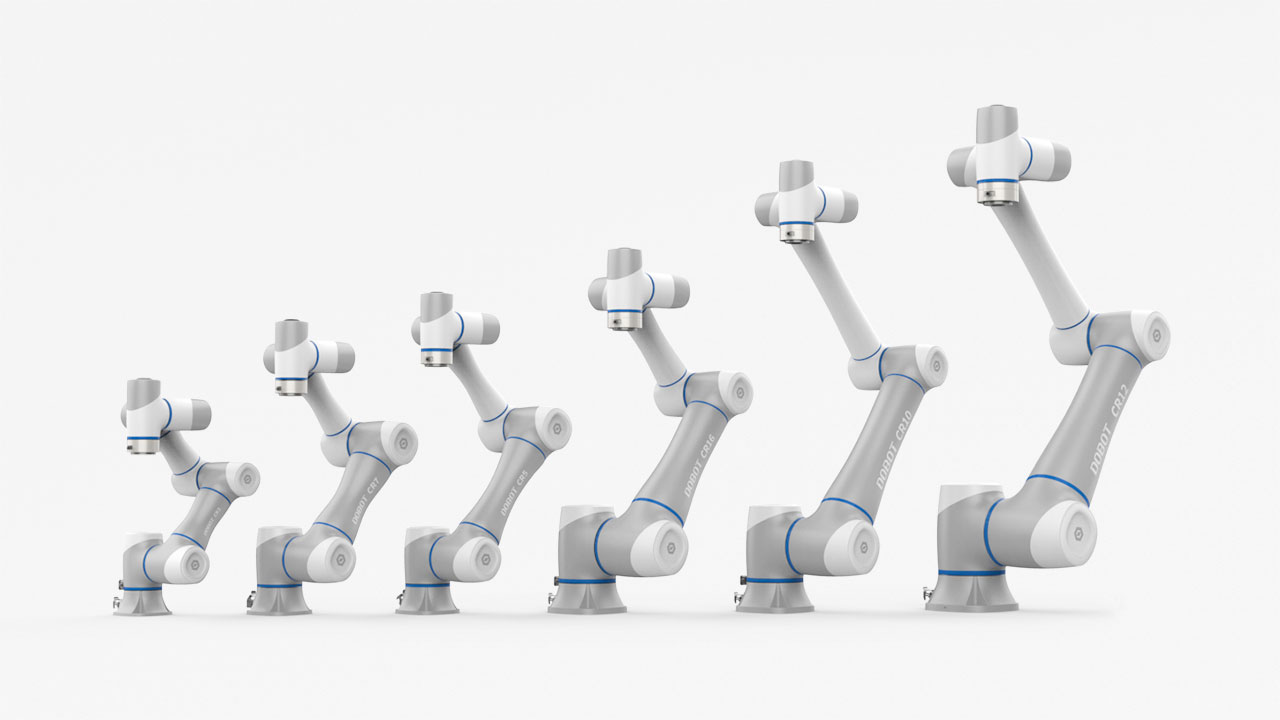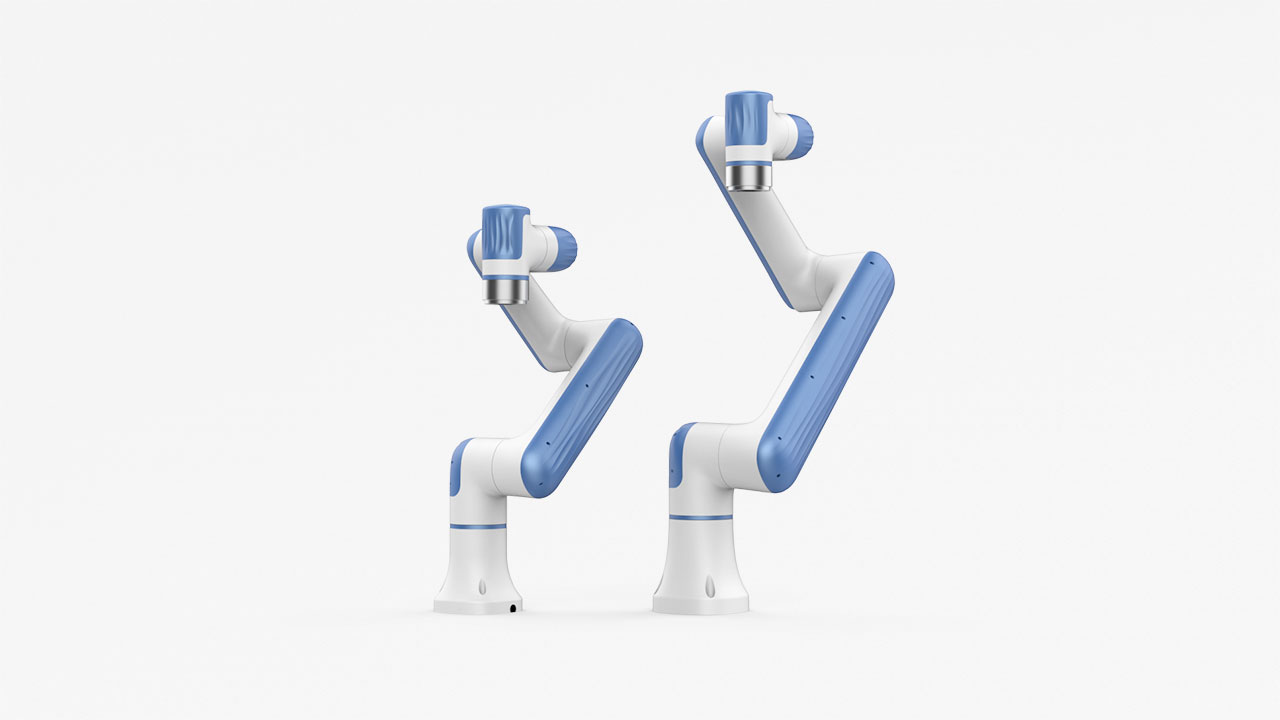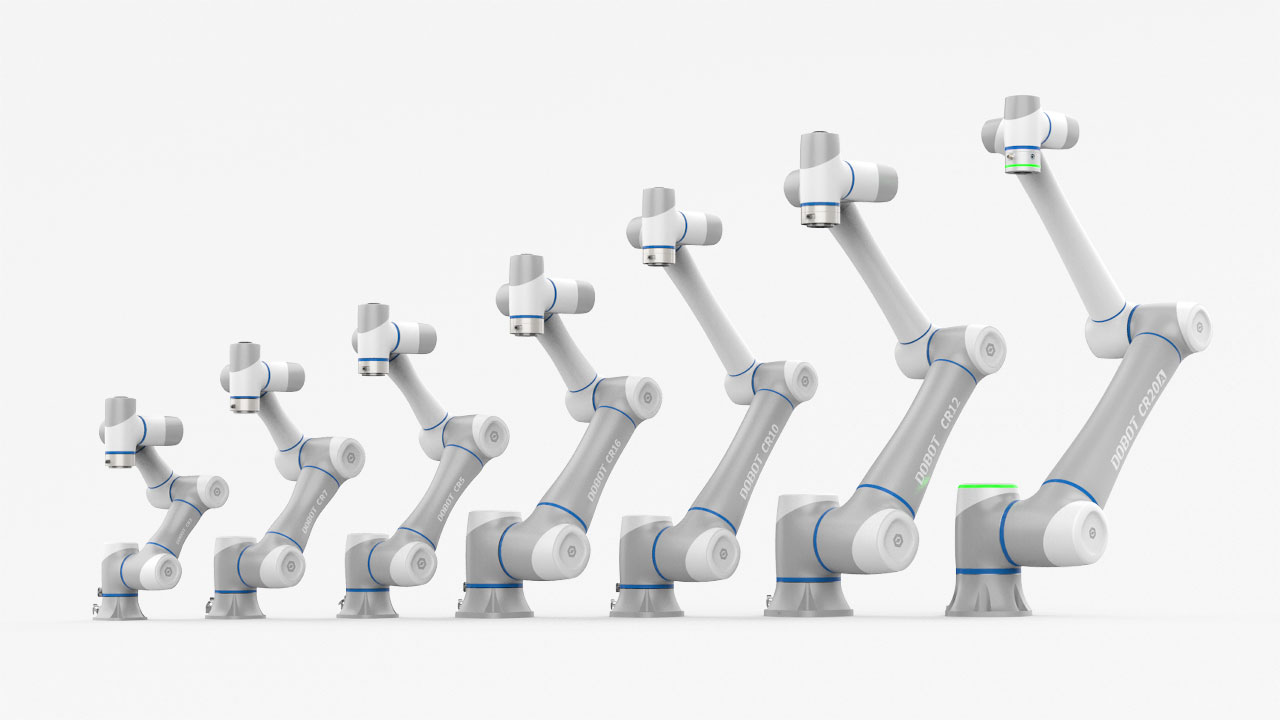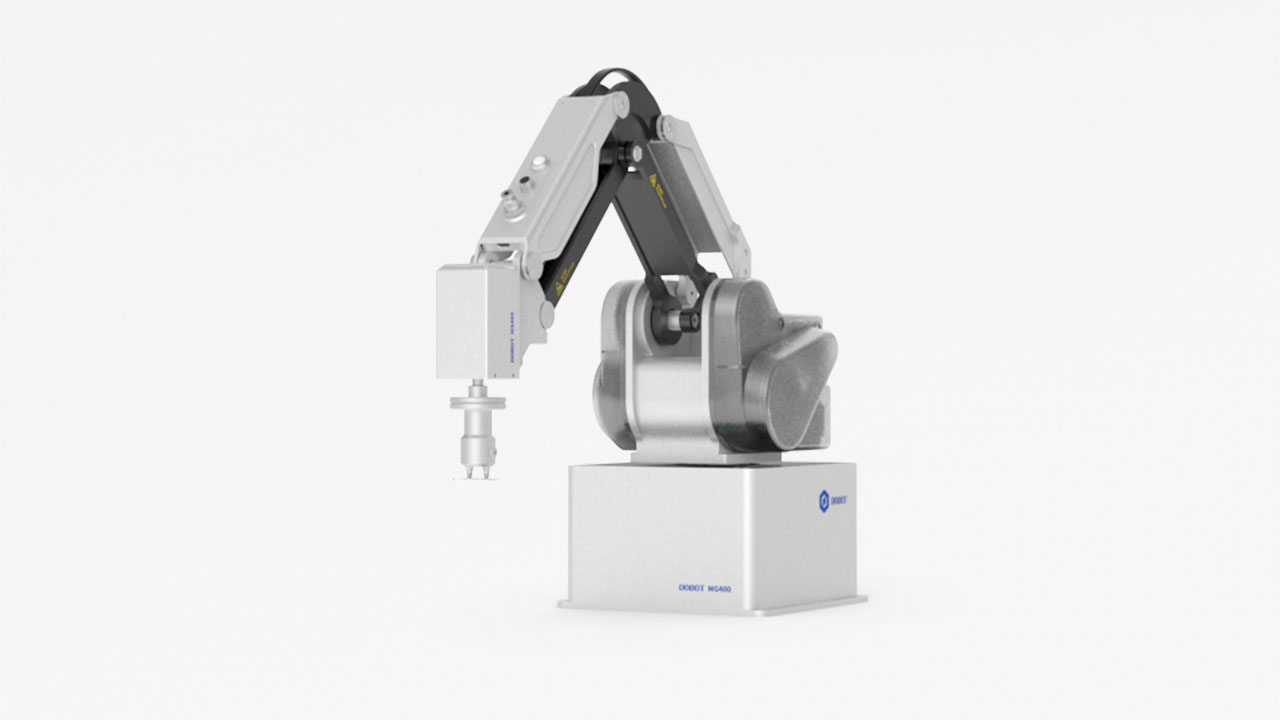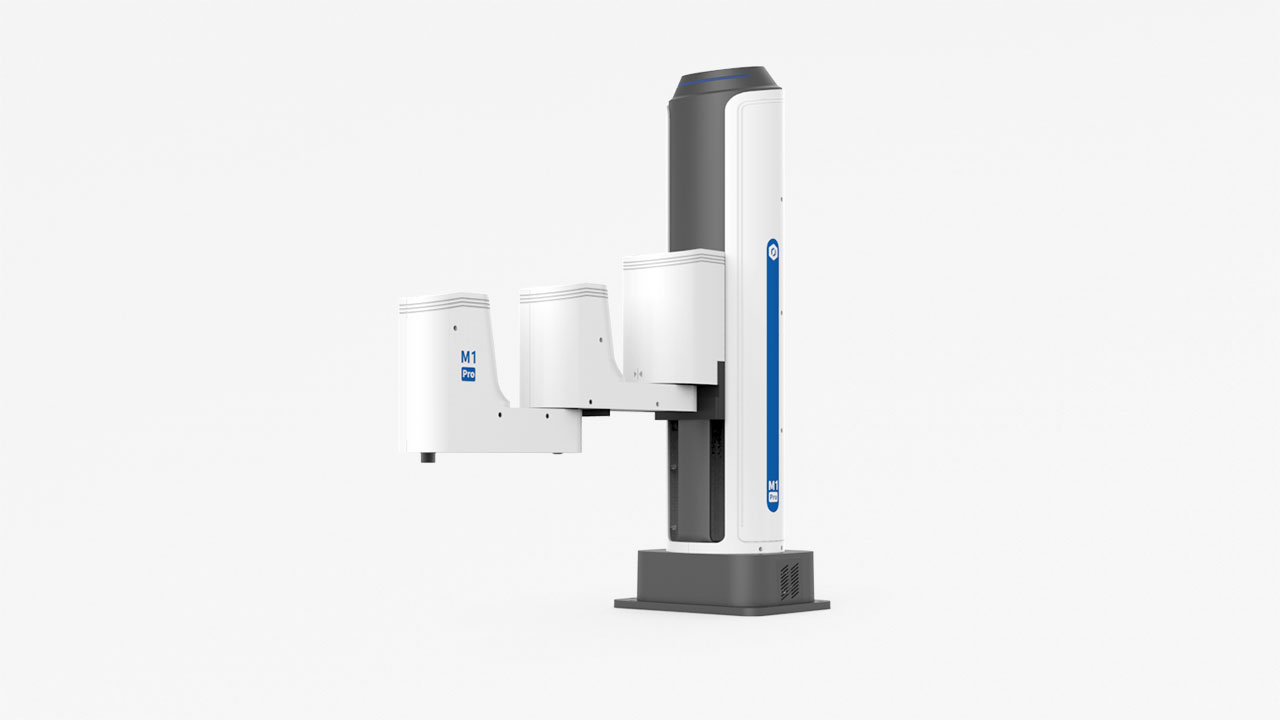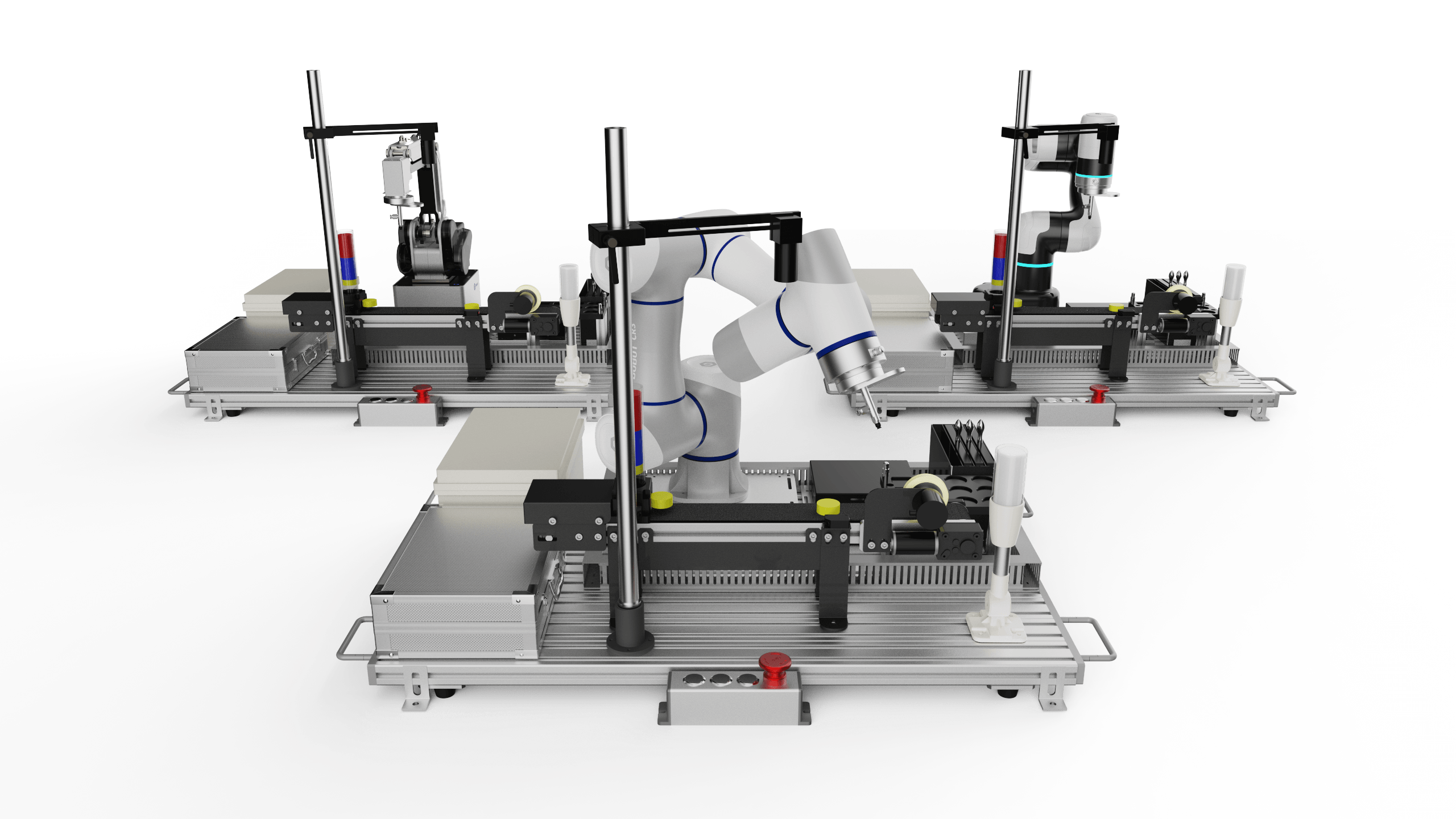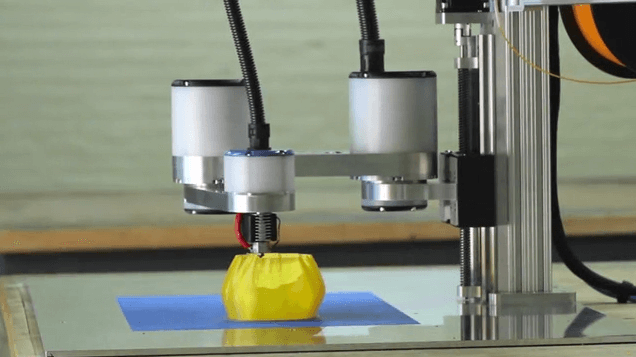Cobot palletizer solution increasingly replaces the traditional industrial robots and manual work in small, medium, and even large enterprises. However, there comes to ensuing demand: Can cobot flexibly customize the specific needs for different production situations, not only standardized palletizing solutions?
When applied in the practices, there are varied factors you need to evaluate and consider:
How Big is Your Workspace? How Many Production Lines?
Measure the physical space in your facility where the cobot palletizer will be located. Ensure there is adequate room for the cobot's reach and movements, as well as any peripheral equipment like conveyors or product staging areas. The cobot's base footprint, height, and required clearances must fit within your available floor space while still providing the necessary range of motion to access all pallets and products.
For smaller facilities with limited square footage, you may need to deploy a single cobot or split the palletizing tasks across two smaller units to optimize space utilization and avoid bottlenecks. Larger factories provide more flexibility to dedicate a full palletizing workstation to each production line, parallelizing the process across the facility.
Regardless of your facility size, confirm there is adequate room for the cobot's base, full range of motion, and any necessary safety guarding or supporting hardware. Upfront space assessment ensures the cobot palletizer can be seamlessly integrated without disrupting your existing workflows and layout.
Dobot palletizing solution 2,100mm for lifting column-type workstations and 1,740mm for columnar workstations, ultra-compact design to handle different situations no matter tiny workshops or limited production lines.
Assess whether the Palletizer Robots are Load-bearing
Understand the size, weight, and other characteristics of the products you need to palletize. This will inform the payload capacity, gripper design, and other technical requirements of the cobot system. Factors like product dimensions, weight, surface texture, and fragility will determine the appropriate end-of-arm tooling and control parameters to handle them safely and efficiently.
Ideally, you don’t want your cobot swinging heavy loads around on the edge of its reach as this could create risks of it toppling over or becoming damaged. Or, the maximum permissible payload of most cobots decreases as the center of gravity is lowered. This is primarily because the torque required to move an object away from the tool flange increases. To visualize this, imagine the difference between holding a 2 kg cylinder close to your body and holding your arms out wide.
Securely Gripping Your Products
Choose the optimal gripper or vacuum end effector that can dependably and safely handle your products. This is a critical component that must be precisely matched to your application. Factors like product shape, weight, surface texture, and sensitivity will determine the most appropriate end effector technology, such as parallel grippers, vacuum cups(single or double), or specialized custom tools. For example, when palletizing a number of boxes, dual vacuum cups will be a perfect-fit choice; when pick up the bottles or cans, large gripper can streamline the workflow.
What Kind of Package Styles You Want?
Consider the type of pallets you use - wood, plastic, or other materials - and ensure the cobot's end-of-arm tooling is compatible. The gripper or vacuum end effector must be able to reliably lift, transport, and stack the specific pallet design without damage. The pallet weight, surface friction, and structural integrity will impact the end effector selection.
For example, you may need to palletize products requiring added protection, such as delicate items or those prone to damage. In these cases, you may require pallet dividers or slip sheets to cushion the load. The cobot's gripper and programming must be tailored to handle these specialty pallet types safely and efficiently.
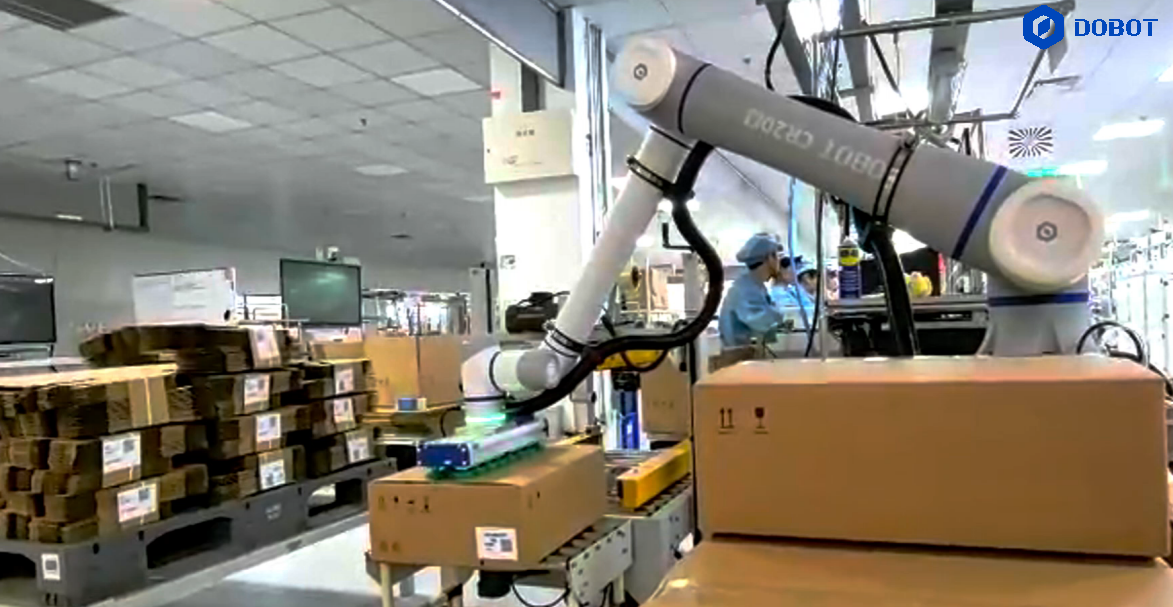
Dobot Customizes Palletizer Solution to Fix the Label Direction
Clarify Your Throughput Goals
Assess your expected palletizing volume and cycle time requirements. This will guide the selection of the appropriate cobot model in terms of speed and payload to meet your productivity needs. Factors like production line speed, daily/weekly throughput targets, and shift schedules will determine the required palletizing rate and capacity of the cobot system.
According to the practice provided by Dobot, a large frozen products and convenience food provider requires a double output. Equipped with the high speed of the Dobot CR20 cobots, 5 boxes stacked before are now replaced by 10 boxes per minute with a dual-suction customized.
Flexibly Adjust the Palletizing Patterns
Cobot palletizers can be programmed to handle a variety of palletizing patterns, from simple stacking to more complex interlocking configurations. Analyzing your typical pallet load patterns and sizes will help you select the right cobot with the programming flexibility to optimize pallet utilization and stability.
By carefully evaluating these factors and partnering with your cobot integrator, you can customize a palletizing solution that is perfectly tailored to your unique business requirements. This flexible approach will help you achieve maximum productivity, efficiency, and return on investment from your cobot automation.
